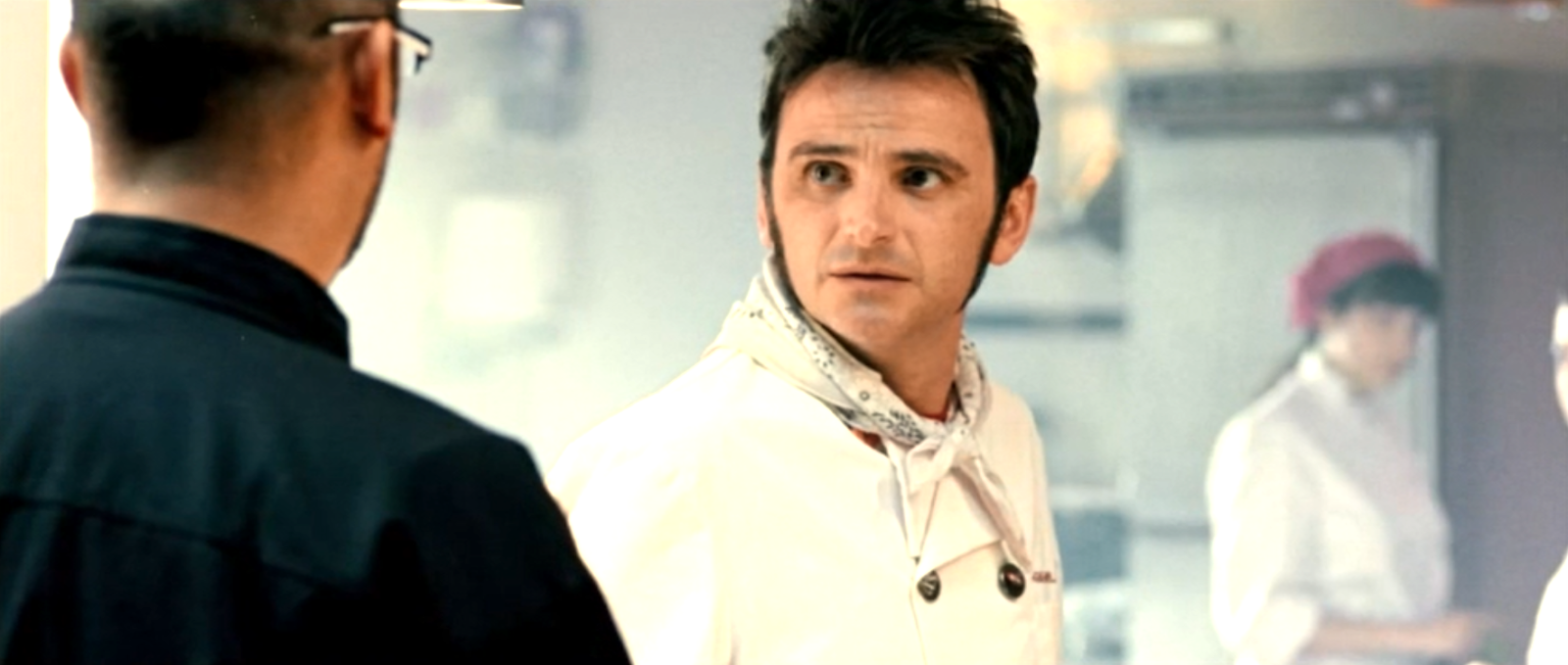finding family
by Douglas
Messerli
Nacho G.
Velilla, David S. Olivas, Oriol Capel, and Antonio Sánchez (screenplay), Nacho
G. Velilla (director) Fuera de carta (Chef’s Special) / 2008
This Spanish
farce was a terribly popularly film at home in Spain, ending up at the 6th
best-selling movie in 2008, while the critics demurred.
Noted chef of the Xantarella
Maxi (Javier Cámara) is a perfectionist when it comes to food, and like many an
owner chef almost abuses his employees, some of whom such as Ramiro (Fernando
Tejero) seem to almost deserve it. Maxi’s goal is to win a star from the Michelin Guide. Indeed, the film begins with Ramiro
mistaking a Michelin tire salesman with a reviewer of restaurants, the staff
cooking up a very special meal for no result.
But things get “cooking” so to speak with
Maxi’s maître d’ Alex (Lola Dueñas) arrives drunk and forlorn, having once more
been dumped by a man. Maxi, a gay man, long out of the closet and openly
homosexual, comforts the angry woman by taking her home and attempting to put
her to sleep on his couch, mostly with little effect.
Horacio and Maxi go to bed, while Alex
attributes Horacio’s failure to carry through sex as his chivalrous behavior.
She continues to delude herself for many days until Horacio admits that she is
not for him, Alex presuming he has another woman, and again becoming furious
with the intent of tracking his bedmate down to destroy her. When she finally
discovers that the other woman is actually her boss, she once more goes on a
rampage.
This craziness might have been enough
for any one farce, but an even more important even occurs when his ex-wife dies
and their children, Edu (Junio Valverde) and young sister, are forced to come
live with him, both, particularly the angry young teenager Edu hating their
father for his years of inattention. The boy’s anger is most palpable when he
gets into a fight about homosexuality, bullying a young gay boy of his age, at
school. Edu is expelled.
Maxi’s restaurant is near bankruptcy. But
then he is secretly given the name of the true Michelin Guide reviewer, and is
rejuvenated with possibilities. Indeed, the reviewer makes a dinner
appointment, which happens also to be Edu’s birthday.
Finally, realizing what a failure his
has been, Maxi decides to drive to his parents to bring his son a special gift,
believing he will be able to return before the reviewer arrives. He puts his
saute-chef in charge, only to discover via telephone that she, who is pregnant,
has gone into labor and the reviewer has arrived early. Although his daughter
his happy to see him, Edu is still angry until Maxi admits that yes, he did
dislike the fact of his children’s existence and that he has failed at everything.
Suddenly, and quite unbelievably, Edu and he make up, while the foolish Ramiro
is left to speak for Maxi’s excellent restaurant.
The results are quite obvious, as in the
last scene we observe the Xantarella having been turned into a small and cosy
café, and finally Maxi, a changed man, determines to take off a day to share
with Horacio, Edu and daughter on trip in the country, leaving the cooking to
his able and no longer abused workers.
The joy of the film is the farcical chaos
it creates, but at the same time it is so stuffed with plot details which jut
off in all directions (I have left out dozens of extraneous scenes), that
anyone who desires a truly coherent message—critics obviously—will be confused
and disappointed. One should leave this film to its appreciative everyday
audiences who don’t mind, apparently, patching up the holes when the film goes
awry.
Frankly, I loved this rather
old-fashioned comic treat. To describe it as anything else would be nearly
impossible, but we need farce sometimes in our lives.
Los
Angeles, June 5, 2025
Reprinted from My Queer Cinema blog
(June 2025).




